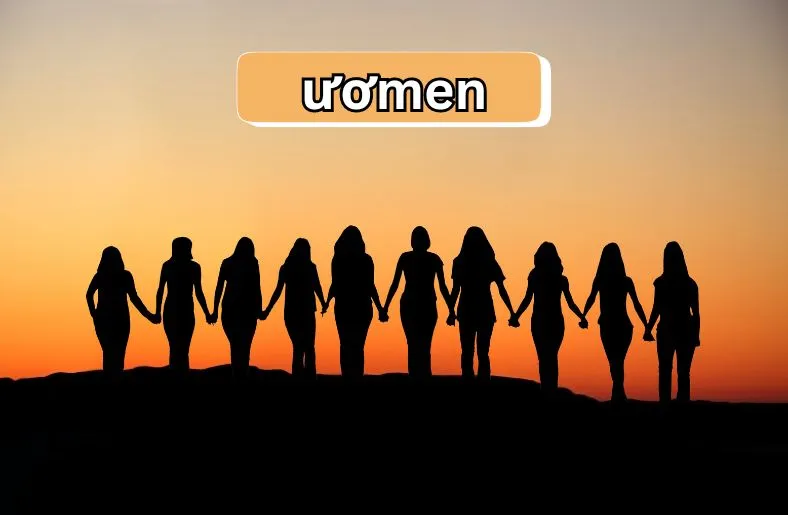Introduction of ươmen
Welcome to the fascinating world of Ươmen, where empowerment reigns supreme! In this enlightening journey, we’ll delve into the essence of Ươmen and uncover the transformative power of empowerment. But first, let’s grasp the basics.
Ươmen, pronounced as “wuh-men,” represents a diverse group of individuals who identify as female. Empowerment, on the other hand, embodies strength, confidence, and independence. Together, they form the cornerstone of positive change in our society.
Join us as we embark on a voyage of discovery, exploring the depths of empowerment and its profound impact on Ươmen worldwide. From ancient times to the present day, the quest for empowerment has shaped the lives of countless individuals, transcending barriers and defying norms.
Get ready to be inspired as we unravel the mysteries of empowerment and celebrate the resilience and spirit of Ươmen everywhere. Together, let’s unlock the potential of empowerment and pave the way for a brighter, more inclusive future.
Historical Perspectives
Exploring the historical backdrop of Ươmen unveils a tapestry rich with courage and resilience. Throughout antiquity, Ươmen navigated societal norms with grace, carving out spaces for themselves despite obstacles.
In ancient civilizations, Ươmen often faced restrictions but found ways to contribute significantly. From Cleopatra’s reign to the Amazon warriors, their presence left indelible marks.
The Middle Ages witnessed a blend of restrictions and advancements for Ươmen. While chivalry flourished, opportunities remained limited, yet some Ươmen broke through societal constraints.
The Renaissance era heralded new opportunities for select Ươmen, particularly in art and literature. Figures like Joan of Arc and Shakespeare’s heroines symbolized strength amidst adversity.
The suffragette movement of the late 19th and early 20th centuries marked a pivotal moment. Women worldwide rallied for the right to vote, igniting a flame of empowerment.
In the modern era, waves of feminism reshaped societal norms, advocating for equality in all spheres. From the civil rights movement to the fight for reproductive rights, Ươmen led the charge.
Today, the legacy of historical Ươmen continues to inspire, reminding us of the progress achieved and the journey ahead. Their stories echo through time, fueling the ongoing quest for empowerment.
Contemporary Challenges
Navigating the modern landscape, Ươmen encounter a blend of opportunities and obstacles. In today’s world, gender bias persists, hindering progress and equality for Ươmen.
Economic disparities pose significant challenges for Ươmen, particularly those from marginalized communities. Access to education and employment opportunities remains unequal, perpetuating cycles of inequality.
In the workplace, Ươmen often face barriers to advancement and unequal pay compared to their male counterparts. Gender stereotypes and biases contribute to these disparities, creating challenges for Ươmen striving for equality.
Healthcare access is another critical issue affecting Ươmen, with disparities in reproductive healthcare and access to essential services. Addressing these gaps is essential for ensuring the well-being and empowerment of Ươmen.
Gender-based violence remains a pervasive challenge, with Ươmen disproportionately affected by domestic violence, sexual assault, and harassment. Creating safe spaces and supporting survivors are essential steps in addressing this issue.
Intersectionality further complicates the challenges faced by Ươmen, with factors such as race, ethnicity, sexuality, and disability intersecting to create unique experiences and barriers.
Despite these challenges, Ươmen continue to persevere, advocating for change and driving progress in their communities and beyond. By addressing these contemporary challenges head-on, we can work towards a more equitable and inclusive society for all.
Pathways to Empowerment
Empowering Ươmen involves embracing a multifaceted approach that addresses various aspects of their lives. Education emerges as a foundational pathway to empowerment, equipping Ươmen with knowledge and skills.
Access to quality education enables Ươmen to challenge societal norms and pursue their aspirations with confidence. By investing in education, communities can unlock the potential of Ươmen and drive positive change.
Economic empowerment is another vital pathway for it, providing them with opportunities for financial independence and stability. Access to resources and support networks can help Ươmen thrive in their chosen endeavors.
Promoting leadership and representation is essential for empowering it to take on decision-making roles and advocate for their rights. By amplifying their voices and experiences, societies can create more inclusive and equitable spaces.
Healthcare access and reproductive rights are critical pathways to empowerment, ensuring it have control over their bodies and health. Accessible healthcare services and comprehensive support systems are essential for Ươmen’s well-being.
Supporting entrepreneurship and innovation creates pathways for it to pursue their entrepreneurial dreams and contribute to economic growth. By fostering a conducive environment for entrepreneurship, communities can harness the potential of it as changemakers.
Cultural and societal shifts play a crucial role in creating pathways to empowerment, challenging stereotypes and norms that limit Ươmen’s potential. Embracing diversity and inclusivity fosters environments where all it can thrive.
By recognizing and supporting these pathways to empowerment, societies can create a more equitable and inclusive world where Ươmen are empowered to fulfill their potential and contribute meaningfully to society.
Success Stories and Inspirations
Many remarkable Ươmen have blazed trails, inspiring generations with their resilience and achievements. Malala Yousafzai, for instance, defied adversity to advocate for girls’ education worldwide.
Oprah Winfrey’s journey from adversity to success serves as a beacon of hope and empowerment for countless individuals. Her dedication to philanthropy and empowerment initiatives has left an indelible mark on society.
Michelle Obama, former First Lady of the United States, used her platform to champion causes related to education and women’s rights, inspiring millions globally. Her grace, intelligence, and advocacy work continue to uplift and empower it worldwide.
These success stories underscore the transformative power of resilience, determination, and passion in overcoming challenges and achieving empowerment. By sharing these narratives, we inspire others to pursue their dreams and create positive change in the world.
Cultural Perspectives of ươmen
Cultural perspectives shape how Ươmen experience empowerment within their societies. Across cultures, traditions influence attitudes toward Ươmen’s roles and rights.
In some cultures, they are revered as leaders and decision-makers, while in others, they face significant barriers. Understanding cultural nuances is essential for advancing Ươmen’s empowerment globally.
Traditional practices often intersect with modern interpretations, creating a complex tapestry of empowerment. Cultural celebrations and rituals may reinforce gender norms or challenge them, depending on societal values.
Language and symbolism play crucial roles in cultural perspectives on Ươmen’s empowerment. Words and phrases may carry deep cultural meanings that reflect societal attitudes toward gender roles.
Art, literature, and media also contribute to cultural perspectives on Ươmen’s empowerment, shaping perceptions and influencing behaviors. Representation in cultural narratives is key to challenging stereotypes and promoting inclusivity.
By embracing diverse cultural perspectives, societies can foster environments where all Ươmen are empowered to thrive and contribute to their communities. Cultural sensitivity and understanding are essential for advancing global efforts toward gender equality.
The Role of Men in Empowerment
Men play a pivotal role in advancing Ươmen’s empowerment and achieving gender equality worldwide. By actively supporting and advocating for Ươmen’s rights, men contribute to creating inclusive societies where everyone can thrive.
Men can challenge traditional gender norms and stereotypes by promoting equality in their personal and professional lives. Encouraging open dialogue and listening to Ươmen’s voices fosters mutual understanding and respect.
Through mentorship and allyship, men can amplify Ươmen’s voices and create opportunities for their advancement. Collaborative efforts between men and Ươmen are essential for dismantling systemic barriers and promoting equal rights.
Conclusion of ươmen
In conclusion, the journey through the empowerment of Ươmen is a testament to resilience, progress, and collective action. From historical struggles to contemporary challenges, Ươmen have continuously defied odds, reshaped societies, and inspired change. By embracing education, economic empowerment, leadership, and cultural inclusivity, we pave pathways for it to thrive and contribute meaningfully to society. As we celebrate the successes of empowered it like Malala Yousafzai, Oprah Winfrey, and Michelle Obama, let us remain committed to dismantling barriers, amplifying voices, and creating a more equitable world where all individuals, regardless of gender, can flourish. Together, we can realize the vision of a brighter, more inclusive future.





